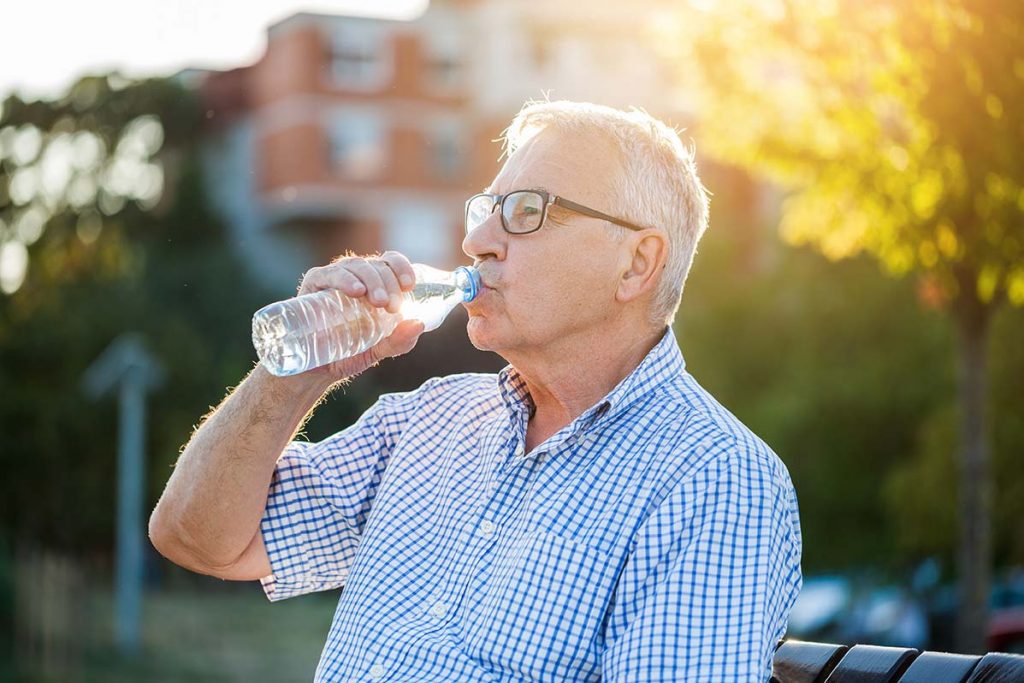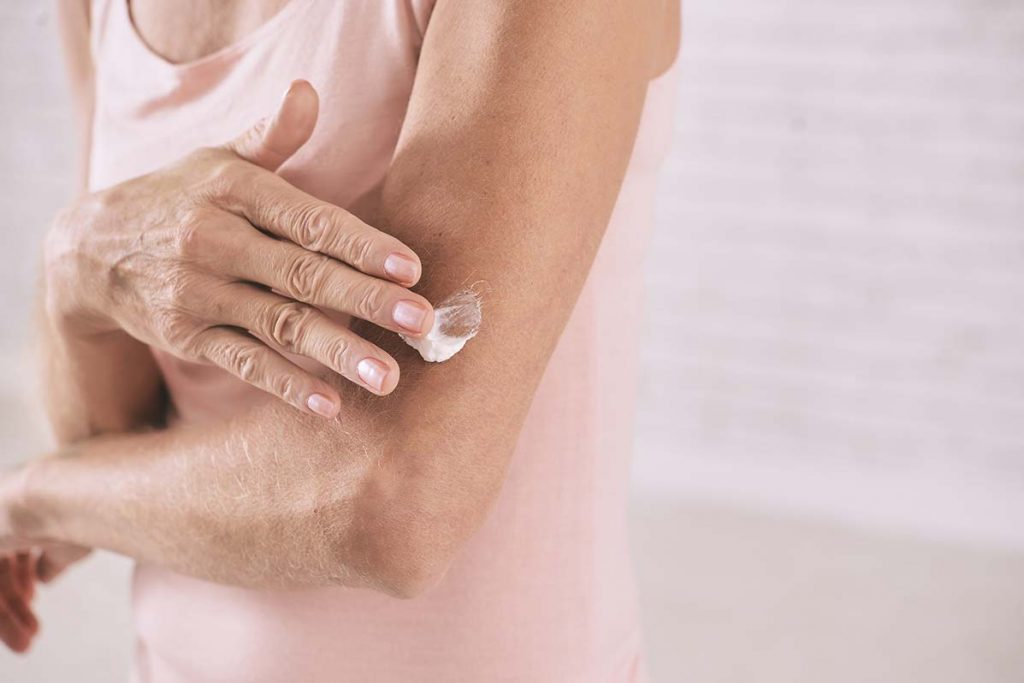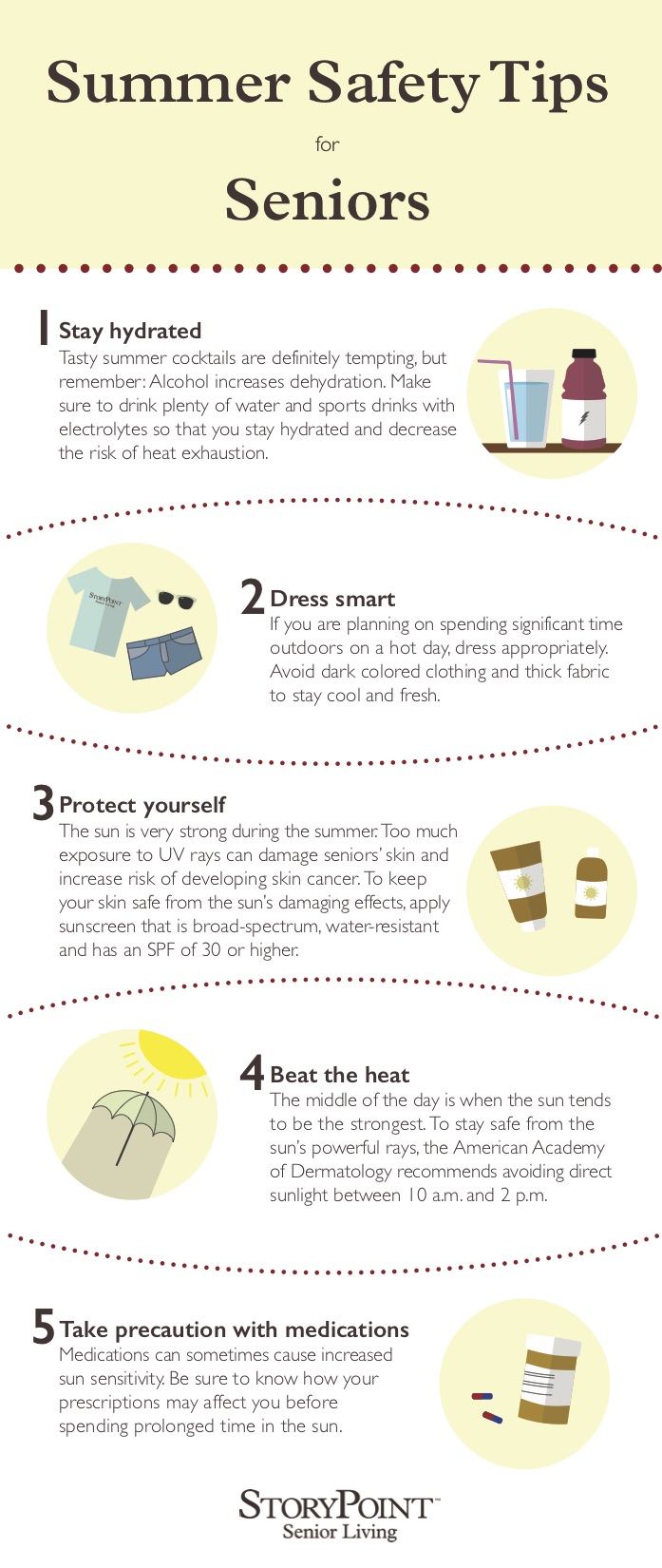Nothing compares to fresh summer air, but practicing effective summer safety tips can help reduce the risk of harmful sun exposure and heat exhaustion. Seniors face some of the greatest risks of heat-related complications, but by staying hydrated and protected, you can have a safe and enjoyable summer season. Read on to learn how to beat the heat.
Staying Hydrated Is Key
In the scorching summer months, proper hydration is going to be your body’s best friend. As you age, your body begins to lose the sense of thirst, so staying on top of your daily water intake is not only crucial but critical.
When looking at ways to stay hydrated in the summer, focus on sipping on healthy drinks such as water, natural fruit juices and fruit smoothies. While drinks with alcohol and caffeine may sound appealing, the high sugar content can dehydrate your body quicker and can do more harm than good. Investing in a reusable water bottle is a great way to keep track of the amount of water you drink daily — but you may be wondering, how much water should I be drinking? To help, use this water intake calculator so that you can stay properly hydrated all summer long. Also, making a point to drink a full glass of water with every meal and when taking medications will make it easier to keep track of your water and helps you form good hydration habits.

Be Mindful Of Thick Fabrics
One of the best parts of summer is bringing out your favorite summer clothes. During the summer months, it is important for seniors to be mindful of the clothes they are wearing based on the material they are made from. Some clothing materials are heavier and less breathable than others, and this can play a role in body temperature regulation.
Buying clothes fit for the summer months is key to being comfortable, especially for outdoor activities and events. Choosing clothes made of more breathable materials such as cotton and linen can help prevent overheating and are perfect for days that consist of all-day sun exposure.
If you know you are going to be spending your day out in the sun, plan accordingly and wear lightweight clothes, a wide-brimmed hat and sunglasses to protect your skin from excessive sunlight.
Protect Yourself Using Sunscreen
Besides wearing the right clothes and staying hydrated, there are other ways to protect yourself from the effects of increased sunlight in the summer months. One simple solution is applying a daily moisturizer that has SPF. If you currently use a daily moisturizer, there is a chance that you are already using a product that has SPF in it, which is great. If not, then try implementing a new product that has SPF protection.
Another important summer safety tip is protecting your skin with sunscreen. The sun is very strong during the summer months, and too much exposure to UV rays can damage your skin or cause skin cancer. The appropriate sunscreen should be SPF 30 or higher to prevent sun irritation or burns. And to be sure you are fully protected, remember to reapply sunscreen every 2 hours.

Beat the Heat
Try to be mindful of peak sun exposure when planning activities with family and friends, as high temperatures can be life-threatening for seniors if they are exposed for too long. If you plan to be outdoors during peak sun hours (10 a.m. to 2 p.m.), pack a cooler with cold water and take breaks in the shade to cool off when needed.
Take Precautions With Medications
During the summer months, it is critical to be aware of your medications and their possible side effects such as dehydration and sun sensitivity. Before spending a lot of time outdoors, make sure to talk to your doctor or care provider to find out if any medications have side effects you need to consider.
If you are looking for a quick resource to help you remember these 5 summer safety tips, download the graphic below for safekeeping.












